Titanium Seamless Elbows: Size from 1/2″ to 8″; wall thickness from SCH 5S to SCH 160. Titanium Welded Elbows: Size from 1/2″ to 48″; wall thickness from SCH 5S to SCH 160. The fittings shall be manufactured in accordance with the dimensional requirements of ASME B16.9 and MSS SP 43. And the materials would be delivered in stress-relieving annealed conditions.
Metline is one of the top manufacturers of titanium butt-welding fittings which include 45° & 90° elbows, 180° returns, reducers, caps, tees, crosses, lateral tees, U type bends, lap-joint stub ends, and other types. The primary application for titanium buttweld fittings is typically for chemical and water treatment industries where titanium fittings are essential due to the anti-corrosive properties and the low weight to cost ratio. Metline are approved manufacturers and suppliers of titanium elbows to several global chemical and industrial plants.
We specialise in manufacturing high quality titanium pipe fittings and titanium flanges, widely used in the petrochemical industry. In addition to various non-standard titanium fittings, Metline produces high quality Titanium elbows (LR, SR) with thick wall or custom wall thickness and bend angles which could reduce customers’ welding work.
We are a long term co-operative partner for many industrial plants across the world for supply of high temperature, high pressure, thick wall, large diameter titanium fittings and flanges used in boiler, power generation, and chemical industry. For the supplies of titanium pipe fittings and flanges, Metline has cooperated with many well-known international engineering companies, and obtained large overseas project orders and have exported to Saudi Arabia, UAE, Germany, France, UK, US, Canada, Brazil, Iran and other countries.
Comparison of Various Titanium Grades – Chemical & Mechanical Properties of Titanium Sheets
| ASTM B265 |
Fe max |
O max |
N max |
C max |
H max |
Pd |
Al |
V |
Mo |
Ni |
Elongation |
Rp 0.2 |
Rm |
| No |
wt% |
wt% |
wt% |
wt% |
wt% |
wt% |
wt% |
wt% |
wt% |
wt% |
% |
YS – MPa |
UTS – MPa |
| Grade 1 |
0.2 |
0.18 |
0.03 |
0.1 |
0.015 |
|
|
|
|
|
24 |
170—310 |
240 |
| Grade 2 |
0.3 |
0.25 |
0.03 |
0.1 |
0.015 |
|
|
|
|
|
20 |
275—450 |
345—480 |
| Grade 3 |
0.25 |
0.3 |
0.05 |
0.1 |
0.015 |
|
|
|
|
|
18 |
360—480 |
480—700 |
| Grade 4 |
0.5 |
0.4 |
0.05 |
0.1 |
0.015 |
|
|
|
|
|
15 |
500—530 |
600—680 |
| Grade 5 |
0.4 |
0.2 |
0.05 |
0.1 |
0.015 |
|
5.5-6.7 |
|
|
|
10 |
800—1100 |
890—1400 |
| Grade 6 |
|
|
|
0.1 |
|
|
|
|
|
|
16 |
780—820 |
820—860 |
| Grade 7 |
0.3 |
0.25 |
0.03 |
0.1 |
0.015 |
0,12-0,25 |
|
|
|
|
20 |
275—450** |
345 |
| Grade 9 |
0.25 |
0.15 |
0.02 |
0.05 |
0.015 |
|
2,5—3,05 |
|
|
|
15 |
550 |
650 |
| Grade 11 |
0.2 |
0.18 |
0.03 |
0.1 |
0.015 |
0.12—0.25 |
|
|
|
|
24 |
170-310** |
240 |
| Grade 12 |
0.3 |
0.25 |
0.03 |
0.1 |
0.015 |
|
|
|
0.3 |
0.8 |
25 |
414—460 |
499—600 |
| Grade 13 |
|
|
|
|
|
|
|
|
|
0.5 |
|
|
|
| Grade 14 |
|
|
|
|
|
|
|
|
|
0.5 |
|
|
|
| Grade 15 |
|
|
|
|
|
|
|
|
|
0.5 |
|
|
|
| Grade 16 |
|
|
|
|
|
0.04—0.08 |
|
|
|
|
27 |
345 |
485 |
| Grade 17 |
|
0.18 |
|
|
|
0.04—0.08 |
|
|
|
|
35 |
206 |
345 |
| Grade 18 |
|
|
|
|
|
0.04—0.08 |
3 |
2.5 |
4 |
|
|
|
|
| Grade 19 |
|
|
|
|
|
|
3 |
8 |
4 |
|
|
|
|
| Grade 20 |
|
|
|
|
|
0.04—0.08 |
3 |
8 |
4 |
|
|
|
|
| Grade 21 |
|
|
|
|
|
|
3 |
|
15 |
|
15—8 |
880—1250 |
915—1350 |
Various Titanium Grades & their UNS Designations
| Grades |
UNS |
Grades |
UNS |
| CP Grade 1 |
R50350 |
CP Grade 2 |
R50400 |
| CP Grade 3 |
R50550 |
CP Grade 4 |
R50700 |
| Titanium Grade 6 |
R54520 |
CP Grade 7 |
R52400 |
| Titanium Grade 9 |
R56320 |
CP Grade 11 |
R52252 |
| CP Grade 12 |
R53400 |
CP Grade 16 |
R52402 |
| CP Grade 17 |
R52252 |
CP Grade 26 |
R52404 |
| CP Grade 27 |
R52404 |
Titanium Grade 28 |
R56323 |
| Titanium Grade 29 |
R56404 |
Ti-10V-2Fe-3Al |
R56410 |
| Ti-13V-11Cr-3Al3-8-6-44 |
R58010 |
Ti-2.5Cu |
– |
| Ti-3Al-8V-6Cr-4Mo-4Zr |
– |
Ti-4Al-4Mo-2Sn |
– |
| Ti-5-2.5Sn ELI |
R54521 |
Ti-5.8Al-4.0Sn-3.5Zr-0.7Nb-0.5Mo-0.35Si-0.06C |
– |
| Ti-5Al-1Sn-1Zr-1V-0.8Mo |
– |
Ti-5Al-2Zr-2Sn-4Mo-4Cr |
R58650 |
| Ti-6Al-2Sn-2Zr-2Mo-2Cr-0.15Si |
R56222 |
Ti-6Al-2Sn-4Zr-2Mo |
R54620 |
| Ti-6Al-2Sn-4Zr-6Mo |
R56260 |
Ti-6Al-4V |
R56400 |
| Ti-6Al-4V ELI |
R56407 |
Ti-6Al-6V-2Sn |
R56620 |
| Ti-6Al-7Nb |
R56700 |
Ti-7Al-4Mo |
R56740 |
| Ti-8Al-1Mo-1V |
R54810 |
|
|
Various Titanium Alloys – Manufactured & Supplied Worldwide
Grade 1 :Unalloyed Titanium. Relatively low strength, high ductility and excellent weldability. Highly corrosion resistant in oxidizing and mildly reducing environments, including chlorides. Main use in heat exchangers.
Grade 2 :Unalloyed Titanium. Most widely used titanium in all product forms for industrial use, offering an excellent balance of moderate strength, ductility and weldability. Medium oxygen. Used in piping systems and heat exchanger tubing.
Grade 3 :Unalloyed Titanium. Offers optimum ductility and cold formability with useful strength, high-impact toughness, and excellent weldability. Highly corrosion resistant in oxidizing and mildly reducing environments, including chlorides. Main use in shell and tube heat exchangers.
Grade 4 :The highest strength pure unalloyed Titanium. High oxygen, extra high strength. Good corrosion resistance in neutral to oxidizing environments, including chlorides. Used in hydraulic and instrumentation tubing.
Grade 5 :Titanium alloy. 6% aluminium, 4% vanadium. Grade 5 is the most widely used titanium alloy. It has very high strength but relatively low ductility. The main application of this alloy is in aircraft and spacecraft. Offshore use is growing. The alloy is weldable and can be precipitation hardened.
Grade 6 :Titanium Alloy. Useful for applications requiring good weldability, stability and strength at elevated temperatures, such as airframe and jet engines.
Grade 7 :Unalloyed Titanium plus 0.12% to 0.25% palladium. Medium strength, standard oxygen. Most corrosion-resistant titanium alloy in reducing and oxidizing environments, with a good balance of moderate strength, reasonable ductility and excellent weldability. Physical and mechanical properties equivalent to Grade 2.
Grade 9 :Titanium alloy including 3% aluminium and 2.5% vanadium. Also known as “half 6-4”. 20-50% higher strength than C.P. grades, but has better weldability and higher tensile strength than the strongest unalloyed grade. Usual applications found in Aerospace, petrochemical, hydraulic & instrumentation tubing, sports and subsea applications.
Grade 11 :Unalloyed Titanium plus 0.12% to 0.25% palladium. This alloy is the same as Grade 1, but with palladium added for better corrosion resistance. Low oxygen. Low strength. Especially suitable for deep drawing requiring optimum ductiility and cold formability. Also has excellent weldability.
Grade 12 :Titanium alloy including 0.3% molybdenum, 0.8% nickel. High strength. Good heat, wear and corrosion resistance. Used for shell and heat exchangers, hydrometallurgical applications.
Grade 13 :Titanium alloy including 0.5% nickel and 0.05% ruthenium. Low oxygen.
Grade 14 : Titanium alloy including 0.5% nickel and 0.05% ruthenium. Standard oxygen.
Grade 15 : Titanium alloy including 0.5% nickel and 0.05% ruthenium. Medium oxygen.
Grade 16 :Unalloyed Titanium plus 0.04% to 0.08% palladium. Standard oxygen, medium strength. Has a good balance of moderate strength, reasonable ductility and excellent weldability. Used in chemical industries because of its outstanding corrosion resistance.
Grade 17 :Unalloyed Titanium plus 0.04% to 0.08% palladium. This alloy is the same as Grade 1, but with palladium added for better corrosion resistance. Grade 17 has optimum ductility and cold formability with useful strength, high-impact toughness, and excellent weldability. Very resistant to crevice corrosion.
Grade 18 :Titanium alloy including 3% aluminium, 2.5% vanadium plus 0.04% to 0.08% palladium.
Grade 19 :Titanium alloy including 3% aluminium, 8% vanadium, 6% chromium, 4% zirconium, 4% molybdenum.
Grade 20 :Titanium alloy including 3% aluminium, 8% vanadium, 6% chromium, 4% zirconium, 4% molybdenum plus 0.04% to 0.08% palladium. Beta – 21S is a metastable beta alloy that offers high specific strength and good formability, and has been designed for improved oxidation resistance, elevated temperature strength, creep resistance and thermal stability, especially in applications above 300°C.
Grade 21 :Titanium alloy including 15% molybdenum, 3% aluminium, 2.7% niobium, 0.25% silicon. Titanium alloy including 6% aluminium, 4% vanadium, and extra low interstitial, ELI23 Alloy 23 is an alpha-beta alloy based on Grade 5, providing improved stress corrosion cracking properties in seawater. Especially suited for thick wall highly stressed parts.
Grade 24 :Titanium alloy including 6% aluminium, 4% vanadium plus 0.04% to 0.08% palladium.
Grade 25 :Titanium alloy including 6% aluminium, 4% vanadium plus 0.3% to 0.8% nickel, 0.04% to 0.08% palladium.
Grade 26 :Unalloyed Titanium plus 0.08% to 0.14% ruthenium. Standard oxygen, medium strength. A corrosion-resistant titanium alloy offering outstanding resistance to general and localised crevice corrosion in a wide range of oxidizing and reducing acid environments including chlorides. Has a good balance of moderate strength, reasonable ductility and excellent weldability. Mechanical properties similar to Grade 2, but improved corrosion resistance. A competitive alternative to 7.
Grade 27 :Unalloyed Titanium plus 0.08% to 0.14% ruthenium. Low oxygen, low strength, and is the same as Grade 1, but with Ruthenium for better corrosion resistance, Grade 27 has optimum ductility and cold formability with useful strength, high-impact toughness, and excellent weldability. Very resistant to crevice corrosion.
Grade 28 :Titanium alloy including 3% aluminium, 2.5% vanadium, plus 0.08% to 0.14% ruthenium. High strength with enhanced corrosion alternative to 9.


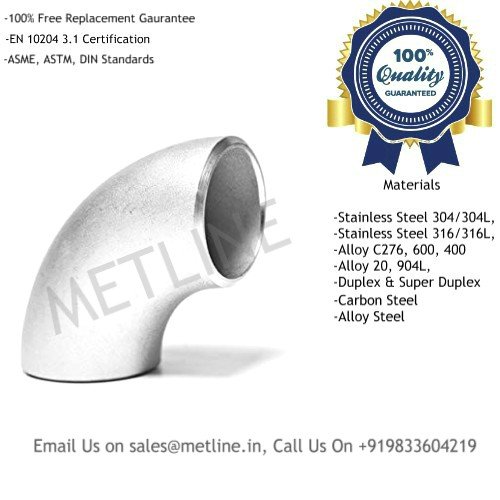

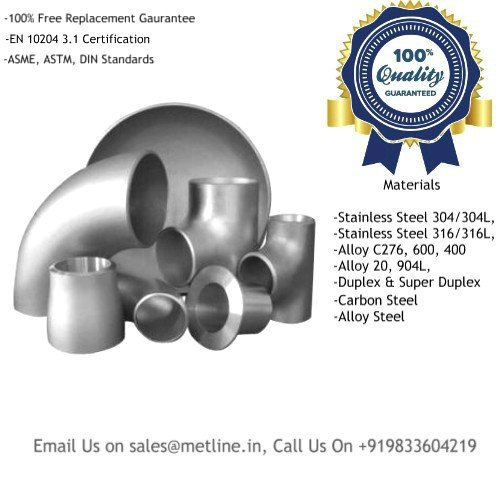
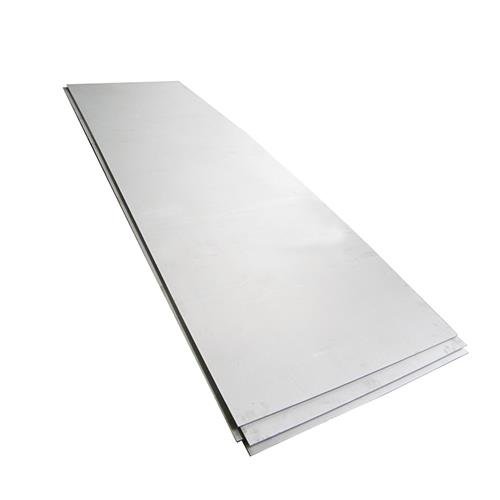
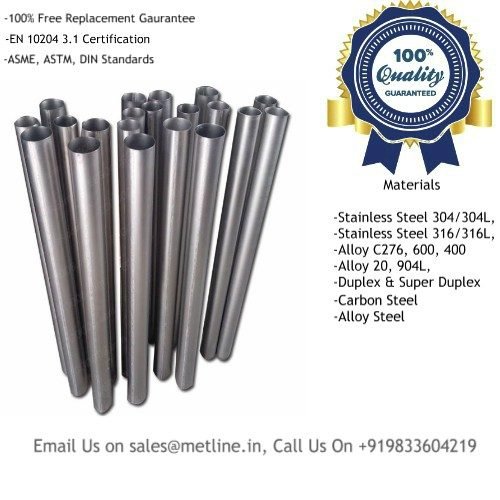
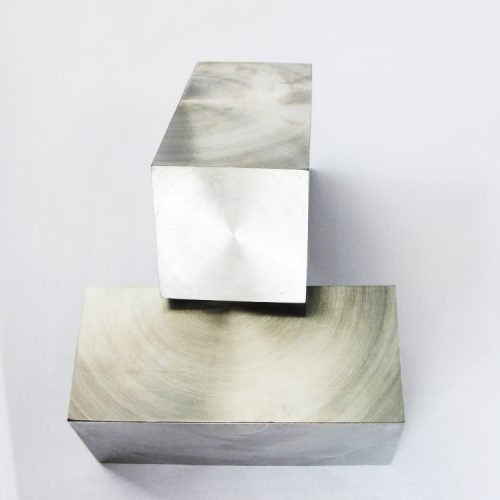
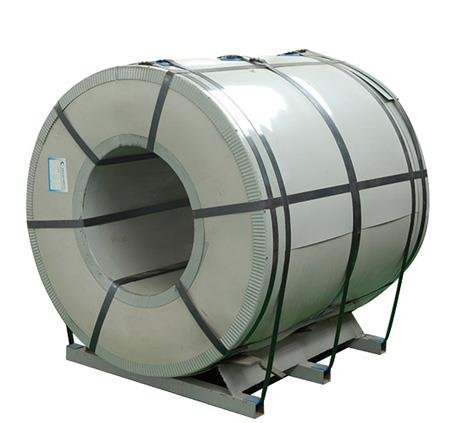
Reviews
There are no reviews yet.